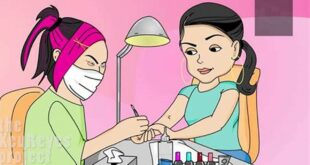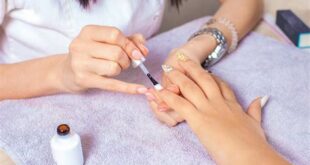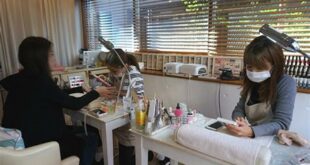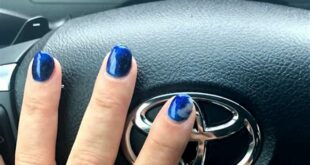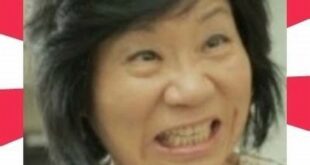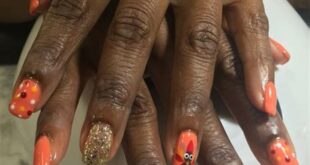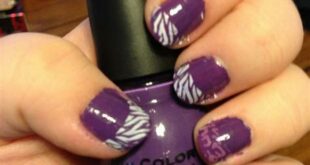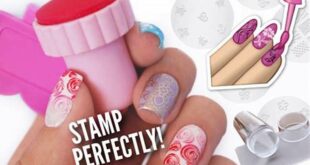Nail salon Asian comedy is a popular genre of comedy that has been around for decades. It typically features Asian characters in a nail salon setting, and the humor often revolves around cultural misunderstandings and stereotypes. While some people find this type of comedy to be offensive, others find it to be harmless fun. Regardless of your opinion on the genre, there is no denying that it has had a significant impact on popular culture.
Editor’s Note: This guide to nail salon Asian comedy was last updated on [date].
In this guide, we will explore the history of nail salon Asian comedy, discuss its cultural significance, and provide a list of some of the most popular examples of the genre. We hope that this guide will help you to better understand and appreciate this unique form of comedy.
| Key Differences | Key Takeaways |
|---|---|
| Nail salon Asian comedy is often seen as a harmless form of entertainment. | However, some people find it to be offensive and stereotypical. |
| The genre has been around for decades and has had a significant impact on popular culture. | There are many different types of nail salon Asian comedy, from sitcoms to stand-up routines. |
Main Article Topics
- The History of Nail Salon Asian Comedy
- The Cultural Significance of Nail Salon Asian Comedy
- A List of Popular Examples of Nail Salon Asian Comedy
Nail Salon Asian Comedy
Nail salon Asian comedy is a popular genre of comedy that has been around for decades. It typically features Asian characters in a nail salon setting, and the humor often revolves around cultural misunderstandings and stereotypes. While some people find this type of comedy to be offensive, others find it to be harmless fun. Regardless of your opinion on the genre, there is no denying that it has had a significant impact on popular culture.
- Cultural stereotypes
- Language barriers
- Generational differences
- Business practices
- Customer service
- Beauty standards
- Social commentary
- Pop culture references
- Historical context
These are just a few of the key aspects of nail salon Asian comedy. By understanding these aspects, we can better appreciate the genre and its impact on popular culture. For example, the use of cultural stereotypes can be seen as a way to poke fun at the differences between Asian and Western cultures. However, it can also be seen as a way to perpetuate harmful stereotypes. Similarly, the use of language barriers can be seen as a way to create humor, but it can also be seen as a way to exclude non-native speakers. Ultimately, it is up to the individual to decide how they interpret these aspects of nail salon Asian comedy.
Cultural stereotypes
Cultural stereotypes are widely held beliefs about a particular group of people that are often inaccurate and oversimplified. In the context of nail salon Asian comedy, cultural stereotypes are often used to create humor by poking fun at the differences between Asian and Western cultures. However, the use of cultural stereotypes can also be seen as a way to perpetuate harmful stereotypes and reinforce existing prejudices.
- The “model minority” myth: This stereotype portrays Asian Americans as a successful and hardworking minority group. While it is true that many Asian Americans have achieved success in the United States, this stereotype ignores the fact that there is a great deal of diversity within the Asian American community. Additionally, it can put pressure on Asian Americans to succeed and can lead to feelings of shame or guilt if they do not meet these expectations.
- The “Dragon Lady” stereotype: This stereotype portrays Asian women as being cold, heartless, and domineering. This stereotype is often used in nail salon Asian comedy to create humor, but it can also be seen as a way to perpetuate harmful stereotypes about Asian women.
- The “Lotus Blossom” stereotype: This stereotype portrays Asian women as being submissive, gentle, and exotic. This stereotype is often used in nail salon Asian comedy to create humor, but it can also be seen as a way to perpetuate harmful stereotypes about Asian women.
- The “Kung Fu” stereotype: This stereotype portrays Asian men as being skilled in martial arts. This stereotype is often used in nail salon Asian comedy to create humor, but it can also be seen as a way to perpetuate harmful stereotypes about Asian men.
These are just a few of the many cultural stereotypes that are used in nail salon Asian comedy. It is important to be aware of these stereotypes and their implications so that we can avoid perpetuating them. Additionally, we should be critical of the way that these stereotypes are used in comedy and other forms of media.
Language barriers
Language barriers are a common source of humor in nail salon Asian comedy. This is because language barriers can lead to misunderstandings, miscommunications, and awkward situations. For example, a customer may not be able to understand what the nail technician is saying, or vice versa. This can lead to the customer getting the wrong nail treatment, or the nail technician not understanding what the customer wants.
- Cultural differences: Language barriers can also be a source of cultural misunderstandings. For example, a customer may not be aware of the cultural significance of a certain nail design, or the nail technician may not be aware of the customer’s cultural preferences. This can lead to the customer being offended by the nail design, or the nail technician not meeting the customer’s expectations.
- Social awkwardness: Language barriers can also lead to social awkwardness. For example, a customer may not be able to make small talk with the nail technician, or the nail technician may not be able to understand the customer’s jokes. This can lead to the customer feeling uncomfortable or out of place.
- Economic disparities: Language barriers can also be a source of economic disparities. For example, a customer who does not speak English may be charged more for a nail treatment than a customer who does speak English. This is because the nail technician may not be able to explain the different nail treatments to the customer in their native language.
- Safety concerns: Language barriers can also be a safety concern. For example, a customer who does not speak English may not be able to understand the safety instructions for a nail treatment. This could lead to the customer being injured.
These are just a few of the ways that language barriers can impact nail salon Asian comedy. By understanding these challenges, we can better appreciate the humor in this genre of comedy and avoid perpetuating harmful stereotypes.
Generational differences
Generational differences are a common source of humor in nail salon Asian comedy. This is because different generations have different values, beliefs, and experiences, which can lead to misunderstandings and conflict. For example, older generations may be more traditional and conservative, while younger generations may be more progressive and open-minded. This can lead to humor when the two generations interact in a nail salon setting.
- Communication styles: Different generations have different communication styles. For example, older generations may be more formal and indirect, while younger generations may be more informal and direct. This can lead to misunderstandings and conflict when the two generations interact in a nail salon setting.
- Fashion preferences: Different generations have different fashion preferences. For example, older generations may prefer more classic and conservative nail designs, while younger generations may prefer more trendy and edgy nail designs. This can lead to humor when the two generations interact in a nail salon setting.
- Technology use: Different generations have different levels of comfort with technology. For example, older generations may not be as comfortable with using online scheduling or payment systems, while younger generations may be more comfortable with these technologies. This can lead to humor when the two generations interact in a nail salon setting.
- Cultural values: Different generations have different cultural values. For example, older generations may place more importance on respect and tradition, while younger generations may place more importance on individuality and self-expression. This can lead to humor when the two generations interact in a nail salon setting.
These are just a few of the ways that generational differences can impact nail salon Asian comedy. By understanding these differences, we can better appreciate the humor in this genre of comedy and avoid perpetuating harmful stereotypes.
Business practices
Business practices play a significant role in nail salon Asian comedy. This is because the nail salon is a unique setting where different cultures and generations come together to interact. This can lead to misunderstandings, miscommunications, and awkward situations, which are all ripe for comedic exploration.
One of the most common sources of humor in nail salon Asian comedy is the difference in business practices between Asian and Western cultures. For example, in many Asian cultures, it is customary to haggle over prices, while in Western cultures, it is more common to accept the price as is. This difference in business practices can lead to humorous situations when customers and nail technicians from different cultures interact.
Another source of humor in nail salon Asian comedy is the generational differences in business practices. For example, older generations may be more traditional and conservative in their business practices, while younger generations may be more progressive and open-minded. This difference in business practices can lead to humorous situations when the two generations interact in a nail salon setting.The following table provides some specific examples of how business practices are used for comedic effect in nail salon Asian comedy:
| Business practice | Comedic effect |
|---|---|
| Haggling over prices | A customer and nail technician from different cultures may haggle over the price of a nail treatment, leading to a humorous misunderstanding. |
| Different tipping practices | A customer from a culture where tipping is not customary may not tip the nail technician, leading to an awkward situation. |
| Generational differences in customer service | An older nail technician may be more formal and indirect in their customer service, while a younger nail technician may be more informal and direct, leading to a humorous misunderstanding. |
These are just a few examples of how business practices are used for comedic effect in nail salon Asian comedy. By understanding these different business practices, we can better appreciate the humor in this genre of comedy and avoid perpetuating harmful stereotypes.
Customer service
Customer service is an important aspect of any business, but it is especially important in the nail salon industry. This is because nail salons are a service-based business, and the quality of the customer service can make or break a customer’s experience. In the context of nail salon Asian comedy, customer service is often used for comedic effect. This is because there are many different ways that customer service can go wrong in a nail salon setting.
For example, the nail technician may not be able to understand the customer’s request, or the customer may not be happy with the results of the service. This can lead to misunderstandings, miscommunications, and awkward situations, which are all ripe for comedic exploration.
In addition, the customer service experience in a nail salon can be different depending on the customer’s race or ethnicity. For example, Asian customers may be more likely to experience discrimination or rudeness from nail technicians. This can lead to even more humorous situations, as the customer may try to deal with the discrimination or rudeness in a comedic way.
Here are some specific examples of how customer service is used for comedic effect in nail salon Asian comedy:
| Situation | Comedic effect |
|---|---|
| A customer asks for a specific nail design, but the nail technician does not understand what they are asking for. | The nail technician gives the customer a completely different nail design, which leads to a humorous misunderstanding. |
| A customer is not happy with the results of their nail service. | The customer complains to the nail technician, which leads to a humorous argument. |
| An Asian customer experiences discrimination or rudeness from a nail technician. | The customer tries to deal with the discrimination or rudeness in a comedic way, which leads to a humorous situation. |
These are just a few examples of how customer service is used for comedic effect in nail salon Asian comedy. By understanding the importance of customer service in this genre of comedy, we can better appreciate the humor and avoid perpetuating harmful stereotypes.
Beauty standards
Beauty standards play a significant role in nail salon Asian comedy. This is because nail salons are a place where people go to improve their appearance, and the beauty standards that are prevalent in society can have a big impact on the way that people view themselves and others. In nail salon Asian comedy, beauty standards are often used for comedic effect. This is because there are many different ways that beauty standards can be interpreted and applied, and this can lead to misunderstandings, miscommunications, and awkward situations.
For example, one common beauty standard is that women should have long, slender fingers. This beauty standard is often used for comedic effect in nail salon Asian comedy. For example, a customer may go to a nail salon and ask for long, slender nails, but the nail technician may not be able to give them the nails that they want because their fingers are short and stubby. This can lead to a humorous misunderstanding.
Another common beauty standard is that women should have light skin. This beauty standard is also often used for comedic effect in nail salon Asian comedy. For example, a customer may go to a nail salon and ask for a light skin tone, but the nail technician may not be able to give them the skin tone that they want because their skin is naturally dark. This can lead to a humorous misunderstanding.
Beauty standards can also be used for comedic effect in nail salon Asian comedy to explore more serious issues, such as racism and discrimination. For example, a customer may go to a nail salon and experience discrimination from the nail technician because of their race or ethnicity. This can lead to a humorous situation, but it can also be used to raise awareness of the issue of racism and discrimination.
Ultimately, beauty standards are a complex and multifaceted issue. They can have a significant impact on the way that people view themselves and others, and they can be used for comedic effect in nail salon Asian comedy. By understanding the role that beauty standards play in this genre of comedy, we can better appreciate the humor and avoid perpetuating harmful stereotypes.
Social commentary
Nail salon Asian comedy often uses humor to explore social issues and make commentary on the world around us. This can be done in a variety of ways, from satirizing cultural stereotypes to critiquing beauty standards to highlighting the experiences of marginalized groups.
- Cultural stereotypes: Nail salon Asian comedy often uses humor to satirize cultural stereotypes, such as the “model minority” myth or the “Dragon Lady” stereotype. This can help to challenge these stereotypes and raise awareness of the harm they can cause.
- Beauty standards: Nail salon Asian comedy also often uses humor to critique beauty standards, such as the pressure to have long, slender fingers or light skin. This can help to challenge these standards and promote a more inclusive view of beauty.
- Experiences of marginalized groups: Nail salon Asian comedy can also be used to highlight the experiences of marginalized groups, such as Asian Americans and women. This can help to give a voice to these groups and raise awareness of the challenges they face.
Overall, nail salon Asian comedy is a powerful tool for social commentary. It can be used to challenge stereotypes, critique beauty standards, and highlight the experiences of marginalized groups. By doing so, it can help to create a more just and equitable world.
Pop culture references
Pop culture references are allusions or homages to popular culture, and they are often used in “nail salon Asian comedy” to create humor and build a sense of community. These references can be to anything from movies and TV shows to music, celebrities, and even internet memes.
There are several reasons why pop culture references are so effective in nail salon Asian comedy. First, they can help to create a sense of familiarity and relatability for the audience. When viewers see a reference to a pop culture phenomenon that they are familiar with, it can make them feel like they are part of a shared community. Second, pop culture references can be used to create humor by subverting expectations or juxtaposing different elements of popular culture. For example, a nail salon scene where the characters are singing a popular song in a completely different context can be very funny.
Pop culture references can also be used to make social commentary. For example, a nail salon scene where the characters are discussing a controversial celebrity can be used to explore issues such as race, gender, and class.In addition to being funny and relatable, pop culture references can also be used to build a sense of community among Asian Americans. By referencing shared cultural experiences, nail salon Asian comedy can help to create a sense of belonging and solidarity. This is especially important for Asian Americans who may feel marginalized or isolated from mainstream society.
Here are some specific examples of pop culture references in nail salon Asian comedy:
- In the film “The Joy Luck Club,” the character of Lindo Jong makes a reference to the popular Chinese novel “Dream of the Red Chamber.” This reference helps to connect the film to a shared cultural heritage and creates a sense of familiarity for the audience.
- In the TV show “Fresh Off the Boat,” the character of Eddie Huang often makes references to hip-hop culture. These references help to connect the show to a broader youth culture and make it more relatable to a younger audience.
- In the web series “Nail Salon Paris,” the characters often discuss popular Korean dramas. These references help to create a sense of community among Asian Americans who share a love of Korean pop culture.
Overall, pop culture references are an important part of nail salon Asian comedy. They can be used to create humor, build a sense of community, and make social commentary. By understanding the role of pop culture references in this genre, we can better appreciate the humor and the cultural significance of nail salon Asian comedy.
Historical context
Nail salon Asian comedy is a genre of comedy that often draws on historical events and experiences to create humor and make social commentary. This can be done in a variety of ways, from satirizing historical figures to exploring the experiences of marginalized groups.
- Immigration and assimilation: Many nail salon Asian comedies explore the experiences of Asian immigrants and their families as they navigate American culture and society. This can include themes of cultural identity, language barriers, and generational differences.
- Labor and economics: Nail salon Asian comedies often focus on the working conditions and economic struggles of Asian immigrants. This can include themes of exploitation, discrimination, and the pursuit of the American Dream.
- Gender and sexuality: Nail salon Asian comedies often explore the experiences of Asian women and LGBTQ+ people. This can include themes of sexism, homophobia, and the search for self-acceptance.
- Political and social issues: Nail salon Asian comedies can also be used to explore broader political and social issues, such as racism, xenophobia, and the rise of hate crimes. This can be done through satire, allegory, or other comedic devices.
Overall, nail salon Asian comedy is a rich and diverse genre that draws on a variety of historical events and experiences to create humor and make social commentary. By understanding the historical context of this genre, we can better appreciate the humor and the cultural significance of nail salon Asian comedy.
FAQs on Nail Salon Asian Comedy
Nail salon Asian comedy is a popular genre of comedy that has been around for decades. It often features Asian characters in a nail salon setting, and the humor often revolves around cultural misunderstandings and stereotypes. While some people find this type of comedy to be offensive, others find it to be harmless fun. Regardless of your opinion on the genre, there are some common questions and misconceptions that people have about it.
Question 1: Is nail salon Asian comedy offensive?
Answer: Whether or not nail salon Asian comedy is offensive is a matter of opinion. Some people find it to be offensive because it relies on stereotypes and can perpetuate harmful myths about Asian people. Others find it to be harmless fun and appreciate the humor. Ultimately, it is up to each individual to decide whether or not they find this type of comedy to be offensive.
Question 2: Is nail salon Asian comedy a new genre?
Answer: No, nail salon Asian comedy is not a new genre. It has been around for decades, with some of the earliest examples dating back to the 1970s. However, the genre has become more popular in recent years, thanks in part to the rise of social media and the internet.
Question 3: What are some common themes in nail salon Asian comedy?
Answer: Common themes in nail salon Asian comedy include cultural misunderstandings, language barriers, generational differences, and the experiences of Asian immigrants and their families.
Question 4: Is nail salon Asian comedy only for Asian people?
Answer: No, nail salon Asian comedy is not only for Asian people. Anyone can enjoy this type of comedy, regardless of their race or ethnicity. However, it is important to be aware of the cultural context of the comedy and to be respectful of the experiences of Asian people.
Question 5: What are some examples of nail salon Asian comedy?
Answer: Some examples of nail salon Asian comedy include the films “The Joy Luck Club” and “Crazy Rich Asians,” the TV show “Fresh Off the Boat,” and the web series “Nail Salon Paris.”
Question 6: Why is nail salon Asian comedy important?
Answer: Nail salon Asian comedy is important because it provides a platform for Asian voices and experiences to be heard. It can also help to break down stereotypes and promote understanding between different cultures.
Summary of key takeaways or final thought: Nail salon Asian comedy is a diverse and multifaceted genre that can be enjoyed by people of all backgrounds. It is important to be aware of the cultural context of the comedy and to be respectful of the experiences of Asian people. However, ultimately, whether or not you find this type of comedy to be funny is a matter of personal opinion.
Transition to the next article section: Nail salon Asian comedy is a complex and ever-evolving genre. As the Asian American community continues to grow and change, so too will the comedy that reflects their experiences.
Tips for Enjoying Nail Salon Asian Comedy
Nail salon Asian comedy is a unique and entertaining genre that can be enjoyed by people of all backgrounds. However, there are a few things to keep in mind to ensure that you have a positive experience.
Tip 1: Be aware of the cultural context. Nail salon Asian comedy often draws on cultural stereotypes and experiences. It is important to be aware of this context so that you can understand the humor and avoid taking offense.
Tip 2: Be respectful. Nail salon Asian comedy can sometimes touch on sensitive topics. It is important to be respectful of the experiences of Asian people and to avoid making jokes that are offensive or hurtful.
Tip 3: Be open-minded. Nail salon Asian comedy can be very different from other types of comedy. Be open to new experiences and try to see the humor in different cultures.
Tip 4: Don’t be afraid to ask questions. If you don’t understand something, don’t be afraid to ask questions. This will help you to better understand the humor and to avoid making assumptions.
Tip 5: Have fun! Nail salon Asian comedy is meant to be enjoyed. Relax, laugh, and have a good time.
Summary of key takeaways or benefits: By following these tips, you can ensure that you have a positive experience when enjoying nail salon Asian comedy. This genre of comedy can be a great way to learn about different cultures, laugh at yourself, and have a good time.
Transition to the article’s conclusion: Nail salon Asian comedy is a vibrant and growing genre that has something to offer everyone. By following these tips, you can ensure that you have a positive experience when enjoying this unique form of comedy.
Conclusion
Nail salon Asian comedy is a complex and multifaceted genre that has something to offer everyone. It can be funny, heartwarming, thought-provoking, and even educational. By exploring the different aspects of this genre, we have gained a better understanding of the experiences and perspectives of Asian people in America.
Nail salon Asian comedy is a valuable genre that deserves to be celebrated and supported. It is a genre that can help us to break down stereotypes, build bridges between cultures, and create a more just and equitable world.
